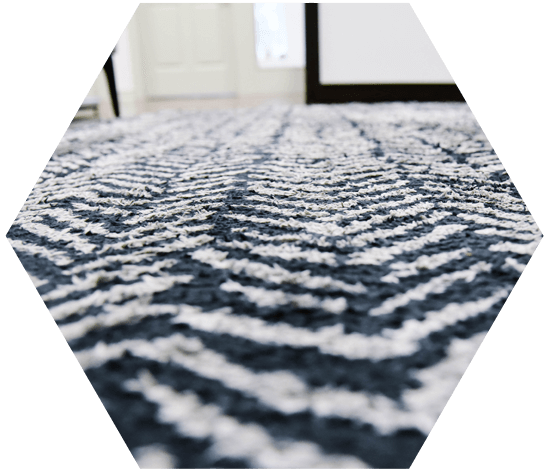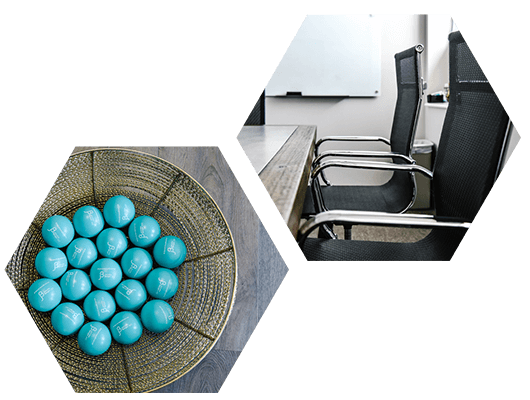Uncontested Divorce
NJ Uncontested Divorce Lawyers
Streamlining the divorce process
Divorce has a reputation for being drawn-out, messy, and hard on the entire family—but not every divorce needs to be that way.
At Jacobs Berger, our attorneys regularly work with clients who are seeking a shorter, simpler divorce process.
When divorcing parties can agree on the terms of their divorce agreement, they can proceed with an uncontested divorce—and bypass a lengthy court process.
If you’re thinking about getting an uncontested divorce, contact us. Our experienced family law firm can guide you through the process.
Understanding the Uncontested Divorce Process in New Jersey
One part of any divorce involves signing a divorce agreement (also known as a Marital, Matrimonial, or Property Settlement Agreement), a legal document that determines how finances, child custody, property, and many other details will be divided.
If the divorcing parties can agree on how to address these matters without the guidance of a third-party mediator or intervention by a judge, they can proceed with an uncontested divorce. In this case, once the parties have reached an agreement, they can submit their paperwork to the court, and if they meet the statutory grounds, the Court will grant their divorce.
Despite the relative simplicity of uncontested divorce, you should still retain legal advice and guidance. An uncontested divorce is still the conclusion of a legal process—and one with lasting consequences.
We strongly recommend working with a family law attorney experienced with uncontested divorce. Here are just a few of the reasons it’s important to have an attorney help:
- All paperwork must be filled out correctly
- It’s important that you fully understand the lasting legal consequences of all the components of your divorce agreement
- An experienced attorney is often aware of a broader range of solutions than those who don’t regularly do divorce work
At Jacobs Berger, LLC, our divorce lawyers in New Jersey have worked with clients through many different kinds of uncontested divorce to reach creative, forward-thinking solutions.
What Does “Uncontested Divorce” Mean?
An uncontested divorce means that the two people getting divorced can agree on how to divide assets and debt, how to arrange custody, a parenting time schedule, and more.
That said, uncontested divorce doesn’t mean the parties proceed without legal advice from their New Jersey uncontested divorce attorneys. Almost everyone still needs guidance in navigating the legal system and drawing up a divorce agreement that accurately reflects their rights in New Jersey.
A divorce is also technically considered “uncontested” if one party doesn’t show up to the proceedings. Those divorces are commonly known as “default judgments.”
We strongly advise against this approach, however. Failing to show up in court leaves you with no say in a process that will impact your life for years.
If you’ve been served with a divorce complaint (the legal paperwork that initiates a divorce process) or a letter from your spouse’s attorney letting you know that a complaint is soon to be filed and you’re at a complete loss for how to respond, contact a family law attorney.
Failing to file a response by the deadline will result in the kind of “uncontested” divorce you don’t want—that is, the kind where everyone but you gets to decide how things will go.




The difference between contested and uncontested divorces
In a contested divorce, the divorcing parties have several options. They can work with a trained, neutral third party who guides them through the process until they reach a settlement. At this point, the parties can go to court labeling their divorce “uncontested.” In many cases, this neutral third party is a mediator who makes recommendations and helps the parties better understand the divorce process. The parties can also seek individual counsel from separate attorneys, whether they’re going through mediation or not.
In the most contentious situations, a settlement may not be reached outside of court, even if attempts to settle through mediation are made. In this case, the divorce is considered contested when it goes to court. These divorces are litigated in front of a judge, who is ultimately responsible for making the final decision.
Uncontested divorce doesn’t have to involve a neutral professional guiding divorcing parties in their decision-making—but it can, and both sides may also retain NJ uncontested divorce attorneys so that they can stay fully informed of their rights.
The terms “contested” and “uncontested” are also used when one spouse files a divorce complaint with the court. In these instances, once the other spouse has been served, they have thirty-five days in which to respond. If they do so, the divorce is “contested.”
If they fail to respond the divorce may be considered “uncontested”—but in this case, they haven’t already collaborated in creating a divorce agreement and so they don’t get any say in how things will be divided.
A divorce can change from “contested” to “uncontested.” There are also instances where divorcing parties can agree on most of their settlement but do need some guidance for particular sticking points.
How child custody is handled during an uncontested divorce
In an uncontested divorce, parents must agree on every component of child custody, including:
- Physical custody: where the child lives
- Parenting time: how much time the child spends with each parent
- Visitation: the right of a noncustodial parent (or grandparents) to visit the child
- Legal custody: who gets to make major decisions for the child
New Jersey courts often indicate a preference for joint legal custody. The Court can, where reasonable, support a 50/50 parenting time split. The Court also expresses a preference for the child to have a relationship with both parents and can order the same unless there’s a glaring concern for the child’s safety or the relationship can be proven not to be in the child’s interest.
While divorcing parents in an uncontested divorce don’t need to adhere to these exact guidelines, understanding these and other court preferences is part of why many people prefer to retain the legal services of their NJ uncontested divorce attorneys—they don’t want to feel pressured to agree to something that might have played out very differently if they had contested the divorce.
Similarly, the state of New Jersey has a set formula for how divorcing parents should calculate child support. However, nuances exist with these formulas, and it’s often easier to have the advice of an experienced attorney to help navigate the options.


Determining Eligibility for an Uncontested Divorce
Technically, there aren’t any eligibility requirements for an uncontested divorce in New Jersey if one or both parties have been a resident for at least twelve consecutive months. Instead, uncontested divorce depends entirely on whether the two parties can agree on a divorce settlement without guidance from a mediator or the involvement of a judge.
However, it’s often the case that the more complex a divorce, the less likely the two parties are to reach an agreement on every issue without formal guidance.
There are many ways to reach an agreement on contested issues in a divorce, including through mediation.
At Jacobs Berger, our NJ uncontested divorce attorneys have decades of combined experience in working with clients to achieve solution-oriented results—whether their divorce is contested or uncontested.
A divorce agreement addresses:
- Child custody
- Child support
- Alimony, also known as spousal support
- The division of all marital assets, including property and debt
Given the range of matters addressed in the divorce agreement, many divorces encounter sticking points where the divorce becomes contested.
However, a contested divorce doesn’t mean that the process has to be hostile or lengthy. A contested divorce can become uncontested as the issues are settled.
How to File an Uncontested Divorce in New Jersey
To file an uncontested divorce in New Jersey, you need a signed final settlement agreement resolving all the issues in your divorce. Both parties will need to submit additional forms and filing fees. Once the divorce is granted, the agreement will become part of the divorce judgment and will carry the weight of a court order.
It’s strongly recommended that both parties work with NJ uncontested divorce attorneys when creating their divorce agreement. Not only is it important to fill out all the required legal paperwork correctly, but a divorce agreement is a binding legal document, and it’s essential to understand your rights and options.
NJ Uncontested Divorce FAQs
Although it may be tempting to think you can save time—and money—handling an uncontested divorce without an attorney, there are many benefits to having legal support. Pursuing an uncontested divorce still requires filing legal paperwork with the New Jersey court system—and when it comes to your rights, you don’t know what you don’t know.
People sometimes agree to very unfavorable conditions in an uncontested divorce agreement because they don’t realize that pursuing a divorce through other methods—arbitration, mediation, or negotiation—would likely lead to a different scenario.
That doesn’t mean that people need to pursue arbitrated divorce to get the most favorable results. However, it does mean that it’s important to talk with a New Jersey family law attorney so that you know exactly what your rights would be if you negotiated some of the issues in your divorce—and so that you can use this information to reach a more fair uncontested divorce agreement.
Every divorce is different. While many people want to get their divorce over as quickly as possible, they also want a final agreement that’s fair. Finding the balance varies according to individual situations and preferences.
For divorcing parties who can quickly reach an uncontested divorce agreement, proceedings may last just a few months. For more complex cases (or cases where certain components of a divorce become contested), the process can last far longer.
If you and your spouse are eligible for a no-fault divorce in New Jersey—meaning that at least one of you has resided in the state for a minimum of twelve consecutive months—then your divorce cannot be denied.
An uncontested divorce is a form of no-fault divorce where both parties can reach an agreement on all aspects of their divorce settlement—though they may still rely on the legal services of NJ uncontested divorce attorneys or benefit from the use of mediators.
Therefore, a judge cannot deny an uncontested divorce.
Work With a NJ Uncontested Divorce Attorney
At Jacobs Berger, LLC, our NJ uncontested divorce attorneys believe that the convenience and benefits of uncontested divorce make it a great option for many of our clients.
We use our extensive experience to guide clients through the legal process—and our goal is to find an amicable resolution to your divorce without unnecessary litigation.
If you’re considering an uncontested divorce, contact us for a strategic planning session and support in pursuing a simplified, streamlined divorce option.


